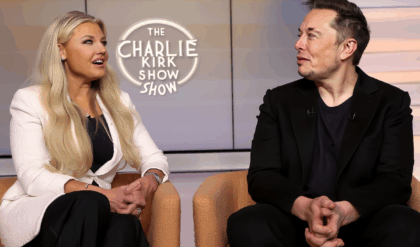For over three decades, The Simpsons has been celebrated not only for its sharp humor and cultural commentary but also for its uncanny ability to seemingly predict future events. From technological advancements to political outcomes, the animated series has built a reputation for foreshadowing real-world developments with eerie accuracy. Among its more recent alleged predictions is the box office failure of Disney’s live-action Snow White remake, starring Rachel Zegler, which has been labeled a catastrophic flop. This article explores the top moments when The Simpsons appeared to predict box office disasters, including the controversial Snow White remake, and examines the context behind these predictions.
The Snow White Debacle: A Predicted Flop?
Disney’s live-action Snow White, released on March 21, 2025, was anticipated to be a major hit, boasting a $270 million budget and a high-profile cast led by Rachel Zegler and Gal Gadot. However, the film has become one of Disney’s most significant financial disappointments, grossing just $202.8 million worldwide against a break-even point of approximately $500 million. The film’s failure has been attributed to a combination of controversies, including Zegler’s polarizing comments about the 1937 original, the decision to replace the seven dwarfs with CGI “magical creatures,” and a broader backlash against Disney’s perceived “woke” agenda.
A YouTube video titled “Rachel Zegler BREAKS DOWN After The Simpsons MOCKS Disney’s Snow White DISASTER?!” suggested that The Simpsons had predicted the film’s downfall. In a 2025 episode, the show reportedly parodied a disastrous movie premiere, with a character resembling a modernized princess facing public ridicule—a scenario fans linked to Zegler’s Snow White. While the episode did not explicitly name Snow White, the parallels were striking: a hyped-up film premiere flops spectacularly amid public controversy, mirroring the real-life trajectory of Disney’s remake. Social media buzz on X amplified this narrative, with users posting, “The Simpsons did it again! They called out Snow White’s box office bomb before it even happened.”
However, skepticism is warranted. The claim that The Simpsons directly predicted Snow White’s failure may be an example of fans retrofitting vague storylines to fit real-world events. The show’s broad satire of Hollywood often includes generic jabs at overhyped films, making it easy to draw connections after the fact. Still, the viral nature of these claims underscores The Simpsons’ cultural influence and its perceived prophetic streak.

Historical “Predictions” of Box Office Disasters
The Simpsons has a history of satirizing Hollywood’s excesses, often with storylines that later seem to align with real-world box office flops. Below are some of the top moments where the show appeared to predict cinematic disasters:
1. The Springfield Files (1997) and Battlefield Earth (2000)
In the 1997 episode “The Springfield Files,” The Simpsons parodied Hollywood’s obsession with sci-fi epics, depicting a poorly received alien-themed movie with shoddy production values. Three years later, Battlefield Earth, a science-fiction film starring John Travolta, became one of the most notorious box office bombs in history. With a $73 million budget, the film grossed only $29.7 million worldwide and was panned for its incoherent plot and over-the-top acting. Fans have since pointed to the episode’s mockery of a “terrible sci-fi movie” as a precursor to Battlefield Earth’s failure, noting the shared theme of overhyped, poorly executed genre films.
2. Homer’s Odyssey (1989) and Ishtar (1987)
While The Simpsons debuted after the release of Ishtar, a 1987 comedy starring Warren Beatty and Dustin Hoffman that lost $40 million against a $55 million budget, the show’s early episodes often lampooned Hollywood’s penchant for bloated productions. In “Homer’s Odyssey,” a fictional film studio produces a comically overbudgeted flop, which fans later linked to Ishtar’s real-world disaster. The episode’s satire of mismanaged studios and misguided star vehicles resonated with Ishtar’s legacy as a cautionary tale of Hollywood hubris.
3. Marge vs. the Monorail (1994) and The Lone Ranger (2013)
The 1994 episode “Marge vs. the Monorail” featured a con artist selling Springfield a faulty monorail, a metaphor for overhyped projects doomed to fail. Fans have drawn parallels to Disney’s 2013 film The Lone Ranger, starring Johnny Depp, which incurred losses of up to $190 million after grossing $260 million against a $215 million budget. The episode’s depiction of a flashy but fundamentally flawed venture mirrors The Lone Ranger’s troubled production and critical panning, with some X users joking, “The Simpsons knew Disney would bet big and lose on that cowboy fiasco.”
4. Itchy & Scratchy: The Movie (1992) and Cutthroat Island (1995)
In “Itchy & Scratchy: The Movie,” The Simpsons pokes fun at a hyped-up film that fails to live up to expectations, disappointing fans and investors alike. This storyline has been retroactively tied to Cutthroat Island, a 1995 pirate adventure that lost $105 million after grossing just $10 million against a $98 million budget. The episode’s focus on a film’s collapse under the weight of its own ambition aligns with Cutthroat Island’s status as one of Hollywood’s biggest flops, cementing The Simpsons’ knack for satirizing industry missteps.
The Snow White Connection: Fact or Fan Fiction?
The alleged Simpsons prediction of Snow White’s failure has garnered significant attention, particularly due to the film’s high-profile controversies. Rachel Zegler’s comments dismissing the original Snow White as “dated” and her political statements, including a pro-Palestine post and anti-Trump remarks, alienated some audiences and fueled boycott campaigns. The film’s reimagining of the seven dwarfs and its “modern” narrative further polarized fans, leading to a 1.6/10 IMDb rating driven by review-bombing.
YouTube channels and X posts have amplified the narrative that The Simpsons foresaw this disaster, citing a 2025 episode where a character resembling a Disney princess faces public backlash at a premiere. However, the episode’s satire appears to target Hollywood’s broader trend of controversial remakes rather than Snow White specifically. Critics argue that fans are engaging in confirmation bias, interpreting general gags as precise predictions. A post on X noted, “The Simpsons mocks Hollywood all the time. Calling this a Snow White prediction is a stretch, but it’s fun to think about.”
Why The Simpsons Seems Prophetic
The Simpsons’ apparent ability to predict events, including box office disasters, stems from its broad satirical scope and long-running nature. With over 700 episodes, the show has covered countless scenarios, increasing the likelihood that some will align with future events. Its writers, known for their cultural savvy, often draw on recurring industry patterns—such as overhyped films with bloated budgets or controversial casting decisions—that tend to repeat over time. As one Reddit user in r/TheSimpsons commented, “They don’t predict the future; they just know Hollywood’s playbook too well.”
The show’s use of archetypes, like the “doomed blockbuster” or the “out-of-touch studio,” allows it to resonate with later events. For Snow White, the episode’s depiction of a controversial film premiere taps into a familiar Hollywood narrative, making it easy for fans to draw connections. Industry analyst Jeff Bock told Variety, “Hollywood keeps making the same mistakes—big budgets, risky remakes, ignoring fanbases. The Simpsons just holds a mirror up to that.”
Fan Reactions and Cultural Impact
The Snow White “prediction” has sparked lively debate online. On X, fans of The Simpsons celebrated the show’s supposed foresight, with one user writing, “Matt Groening is a time traveler. Snow White’s flop was written in the stars.” Others expressed skepticism, arguing that the show’s satire is too broad to constitute a specific prediction. A thread on r/movies questioned the YouTube video’s claims, with a user stating, “The Simpsons didn’t mock Snow White directly. It’s just another case of fans seeing what they want to see.”
Zegler herself has not publicly addressed the Simpsons controversy, though she acknowledged the film’s box office struggles on Instagram, captioning a post with cryptic lyrics: “23 was neither good nor bad but a secret third thing.” Her pivot to smaller projects, including a London production of Evita and an indie film with Marisa Tomei, suggests a strategic retreat from the spotlight.
Conclusion: Prophecy or Pattern Recognition?
The idea that The Simpsons predicted the box office failure of Rachel Zegler’s Snow White is a compelling narrative, but it may owe more to fan enthusiasm than to genuine foresight. The show’s history of satirizing Hollywood’s missteps—from Battlefield Earth to The Lone Ranger—demonstrates its knack for highlighting industry patterns that lead to flops. Whether through sharp writing or sheer volume of content, The Simpsons continues to resonate with audiences by reflecting the cyclical nature of Hollywood’s successes and failures.
As Disney grapples with the fallout from Snow White’s $115 million loss and Zegler navigates her career’s next chapter, The Simpsons remains a cultural touchstone, inviting viewers to laugh at the industry’s excesses while marveling at its apparent clairvoyance. Whether the show truly predicted Snow White’s disaster or simply captured a universal truth about overhyped remakes, its legacy as a satirical oracle endures.





